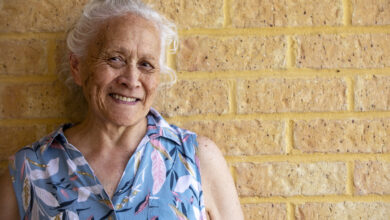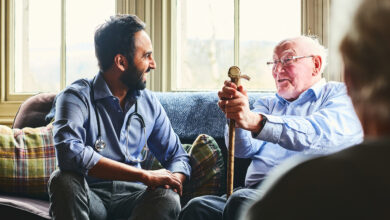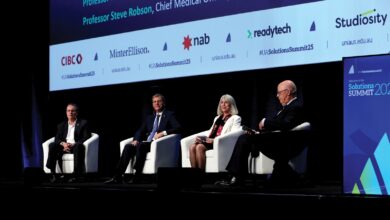ABS scutinised over indigenous exclusion from national health survey
Opposition calls for decision to be reversed at senate estimates hearing. By Lisa Martin
The Australian Bureau of Statistics "missed an opportunity" by excluding Aboriginal children from voluntary medical tests in the national health survey, a Senate hearing has been told.
The survey became embroiled in a racism row when it emerged indigenous children would be excluded automatically from the voluntary medical testing element.
The opposition's indigenous affairs spokesman Nigel Scullion asked officials from the ABS and Office of Aboriginal and Torres Strait Islander Health to justify their decision.
The national survey involves 50,000 randomly sampled adults and children across the country and provides a snapshot of the health of Australians.
For the first time, the survey includes a voluntary collection of blood and urine samples to gauge chronic disease risk factors, such as high cholesterol and levels of nutrients such as iron or B vitamins.
The ABS is due to begin surveying 13,500 indigenous people in April 2012.
Senator Scullion said he was disappointed indigenous children had been excluded and called for the decision to be reversed.
"Given we are spending some $2 billion on closing the gap in indigenous health... I would have thought this was a fantastic opportunity to get some base line health data," he told a Senate estimates hearing in Canberra.
It also would help identify those deficient in nutrients such as vitamin D and folic acid.
ABS official Gemma Van Halderen said the decision had been made after consulting widely with indigenous health experts who thought it inappropriate to attempt to test indigenous kids.
Expected low participation rates would affect the quality of data.
"We were concerned about the response rates we would get from (indigenous communities) and whether we would get meaningful results," Van Halderen told the hearing.
Senator Scullion said there was only one way to find out how useful the information would be and that was to collect it in the first place.
"It would appear to me that you've made the decision before you have the information to make the decision," he said.
The ABS was aiming to build up "community trust" in order to include indigenous children in the national health survey in 2017, Van Halderen said.
"The complexity of collecting this information in remote communities is also a weight on that.
"Bio-medical collections in remote communities add extra complexity into the process."
Senator Scullion rejected the argument that it would be too difficult to test indigenous children.
"Because it's hard doesn't mean we don't do it," he said.
Linda Powell, from the Office of Aboriginal and Torres Strait Islander Health, said there were concerns about "cultural safety issues".
"It's around the issue of building trust and feeling safe," she said.
"In the end it was felt this was something that could be done with adults, children should be worked towards."
Senator Scullion said he felt some indigenous children would have voluntarily participated if given the opportunity.
"The consequence of not doing this is that we have missed an opportunity," he said.
"We know right now there's a screaming need to know more about the demographic, there are enormous health challenges in this area."
AAP
Email: [email protected]





